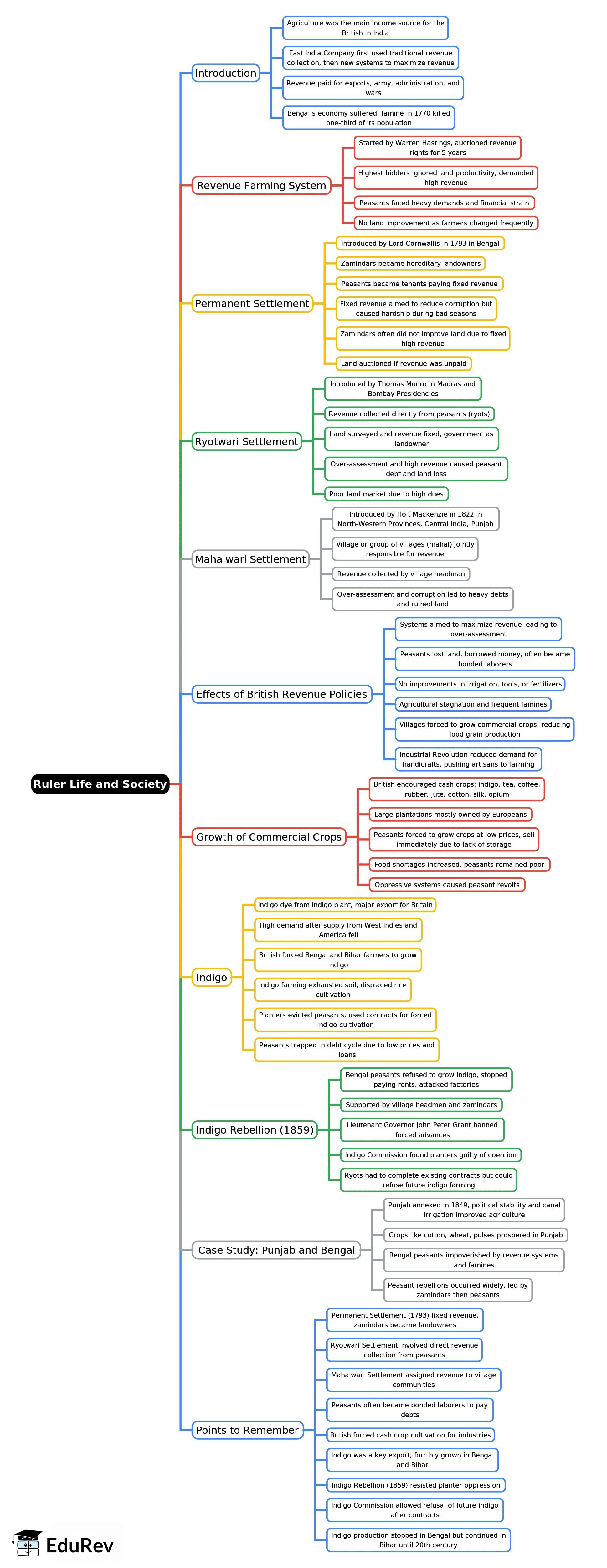Class 8 Exam > Class 8 Notes > History Class 8 ICSE > Mind Map: Rural Life and Society
Mind Map: Rural Life and Society | History Class 8 ICSE PDF Download

The document Mind Map: Rural Life and Society | History Class 8 ICSE is a part of the Class 8 Course History Class 8 ICSE.
All you need of Class 8 at this link: Class 8
|
12 videos|42 docs|12 tests
|
FAQs on Mind Map: Rural Life and Society - History Class 8 ICSE
| 1. What is the significance of rulers in shaping societies throughout history? |  |
Ans.Rulers have played a crucial role in shaping societies by establishing laws, governance structures, and cultural norms. They often influence social hierarchies and economic systems, impacting how resources are distributed and how citizens interact with one another. Through their decisions, rulers can promote stability or contribute to conflict, thereby determining the overall quality of life within their societies.
| 2. How did different types of rulers interact with their subjects in various historical contexts? |  |
Ans.Different types of rulers, such as monarchs, dictators, and elected leaders, have varied in their approaches to governance. Monarchs often ruled by divine right, maintaining power through lineage and tradition, while dictators might use force and propaganda to control their subjects. Elected leaders, on the other hand, are typically accountable to the electorate, leading to different forms of interaction, such as campaigns and public forums. The nature of these interactions greatly affects societal cohesion and public trust.
| 3. What were some common methods used by rulers to maintain control over their territories? |  |
Ans.Rulers have historically employed various methods to maintain control, including military force, strategic alliances, and propaganda. They might establish a strong military presence to deter rebellion or use diplomacy to secure loyalty from other leaders. Additionally, rulers often use propaganda to shape public perception and promote their legitimacy, ensuring that their authority is accepted by the populace.
| 4. How have the roles and perceptions of rulers changed over time? |  |
Ans.The roles and perceptions of rulers have evolved significantly due to social, political, and technological changes. In ancient times, rulers were often seen as divine figures with absolute power. However, the rise of democracy and human rights movements has shifted this perception, leading to increased demands for accountability and transparency. Today, many societies view rulers as public servants whose primary responsibility is to serve the interests of their constituents.
| 5. In what ways did rulers influence cultural practices and societal norms? |  |
Ans.Rulers have significantly influenced cultural practices and societal norms through their policies and personal choices. They often promote certain religious beliefs, art forms, and educational systems that reflect their values. For instance, patronage of the arts can lead to cultural flourishing, while imposing specific laws can reshape social behavior. The ruler's influence can thus create a legacy that shapes the identity of a society for generations.
Related Searches
















